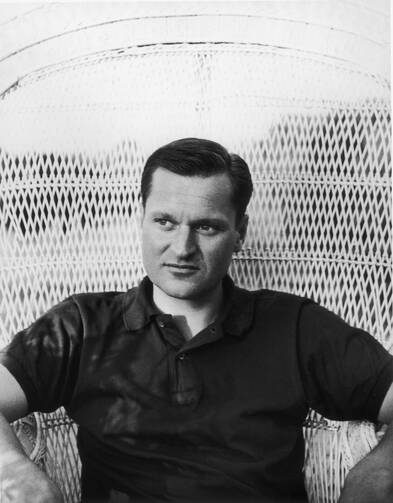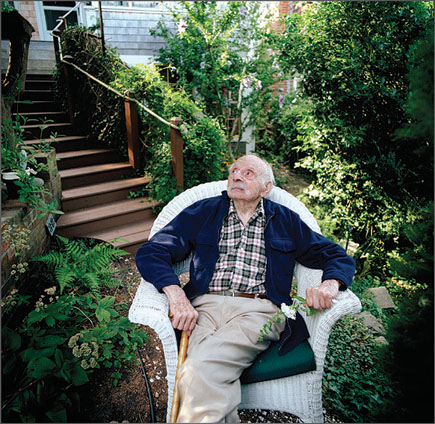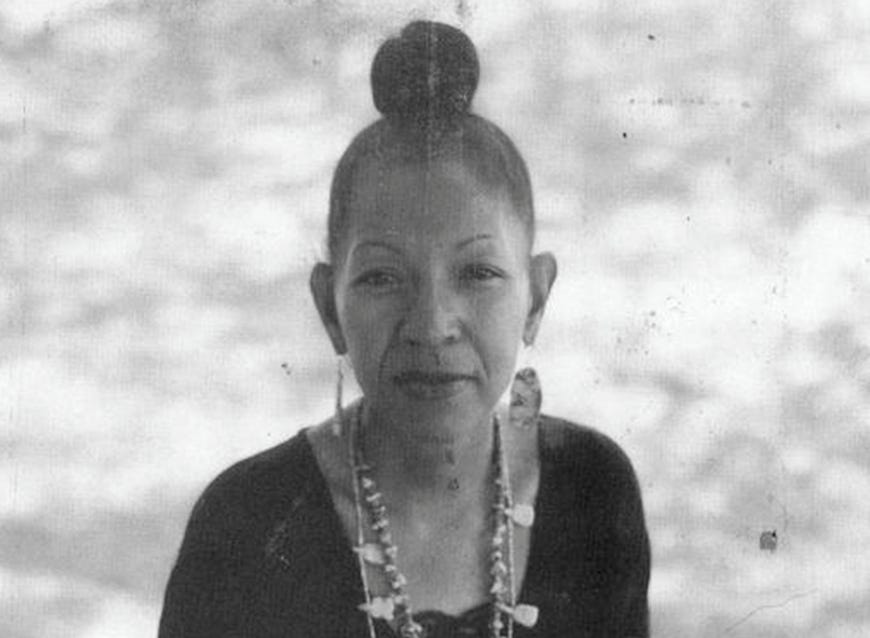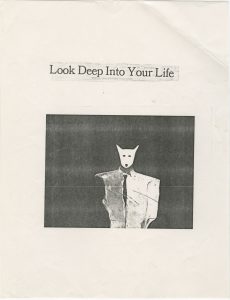
From Mark Ford's article "Letters/And So it goes/Letters from Young Mr Grace. PN Review 239 (January-February 2018)
The names he used to sign his letters convey a similar breadth of interests: Throckmorton P. Gildersleeve (from an American radio sitcom of the forties and fifties); Mrs Harold Chillywater (from Ronald Firbank); Oriane de Guermantes; Boob McNutt (a 1930s comic strip character); Fleda Vetch (heroine of Henry James’s The Spoils of Poynton); Sybil Fawlty; Pastor Fido (from an opera by Handel); The Countess Gruffanuff (from a Thackeray fairytale); Wackford Squeers and Mrs Fezziwig and Miss Havisham; Miss Turnstiles (from the 1949 movie On the Town); Dagwood Bumstead (from the comic strip Blondie); Diggory Venn (from Thomas Hardy’s The Return of the Native); Adinolfa, Carmichael, Bob Boucharessas (from Roussel’s Impressions d’Afrique); Marjory Frobisher (from To the Manor Born); The Sea Hag (from Popeye); Puzzled in Pomona; Captain Peacock, Mr Grainger, Cuthbert Rumbold and Young Mr Grace (from Are You Being Served?).
Like these characters, John seemed indestructible. I am still finding it hard to believe I have no more of his witty, elegant, erudite, goofy, gossipy, supremely entertaining letters to look forward to – and then to answer as best I could.
Thanks so much for your letter and its accompaniments. Of course I remember you, first at Adelphi College, then the greasy spoon on 23rd St., then at a pub near the Tate with your friend Julian, two girls and John Ash. Meanwhile I have gratefully noted your reviews of me in the TLS, most recently of Flow Chart, which seems to have been trounced more severely than the usual Ashbery tome in the English press… These things tend to be cyclical; after a few bleak years review-wise in the US, I came out rather well with Flow Chart. Undoubtedly this stimulated a counter-reaction in the UK, even if no one there was aware of the American reviews, the two countries being rather like the woman with the watering can and the mackintosh-clad man in my Swiss barometer; when the former emerges from their chalet you can expect the heavens to unzip.
Enough of me and my reviews, let’s talk about YOU. Although you correctly intuit that I haven’t (yet) cracked your dissertation (beyond the three quotes at the beginning, which elicited a guffaw)*, I have read Landlocked several times and am absolutely bonkers about it, to the point of writing some poems ‘influenced’ by it, which I’ll send you some time if wheedled. One of them is called ‘The Decline of the West’ and is about my not having read Spengler. I was rather pleased with its first line: ‘O Oswald, O Spengler, this is very sad to find!’ Unfortunately no one in the US recognizes its origins in the first line of Browning’s ‘A Toccata of Galuppi’s’, but you, with your Oxford PhD, will have done so. And so back to you. I love the form you invented in ‘Then She Said She Had to Go’. Surely there are no more beautiful lines in English than ‘Away flies / A carrot I was about to eat’. It’s right up there with ‘The broken sheds looked sad and strange’ from Tennyson’s ‘Mariana’. But I want more! Are there different poems in Chatto Poets II, and if so could you maybe have them send it to me? Also I’d love to see any unpublished ones you might care to send winging this way.
Ah, Kyoto! Home of blowfish and Haagen-Daz! My Rousselian memory particularly retains a building just across the street from the old royal palace which looks like a Tudor-style mansion in Westchester County…
(18 March 1992)
[*These quotes were: ‘No one now writing poems in the English language is likelier than Ashbery to survive the severe judgments of time.’ (Harold Bloom) ‘Ashbery, it has to be said, is a poet so talentless that it’s a wonder his work has been published, let alone received the extravagantly lunatic praise some critics have accorded it.’ (Tom Paulin) ‘Once as I was falling asleep, I sort of imagined a debate between two critics, one of them was saying, ‘I don’t wanna raise my children in the world where John Ashbery can win the Pulitzer Prize,’ and the other one something like, ‘It’s not his fault that he’s responsible for my soul.’]
Just got an e-mail this morning from Olivier [Brossard], who says that Claire is dragging him to The Secret of Brokeback Mountain [sic]. I seem to be the last of my race who hasn’t seen it and I no longer have the excuse that it’s not playing at the redneck-oriented mall in Hudson, because it is. Actually, those red necks have taken on a distinctly mauve cast in recent years, which has made for hard feelings all round (no pun intended). Recently, my friend the novelist Rudy Wurlitzer, who’s very tall and athletic and in his late 60s, had to settle his deceased mother’s Park Avenue apartment and somehow dispose of her toy poodle, which he brought up to Hudson while deciding what to do with it. One morning as he was making coffee in just his pajama pants, he let the dog out and noticed it slipping through a gap in the board fence, rushed out and chased it down the street, finally catching it by the hind leg in the middle of a busy thoroughfare at the same moment his pants fell down to his ankles, which prompted a passenger in a passing pickup truck to yell ‘Hey, you old faggot, why don’t you go back where you came from?’ Rudy, who is acutely straight, mustered as much dignity as possible under the circumstances and yelled back ‘I’m not old!’
(2 February 2006)















